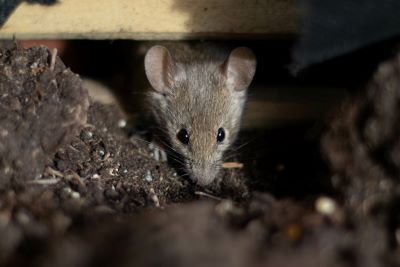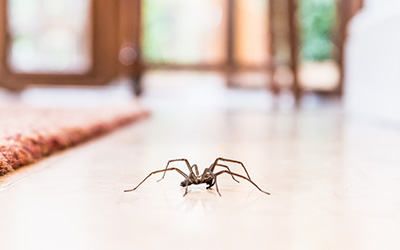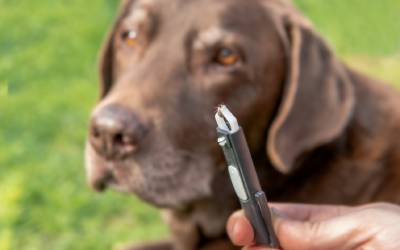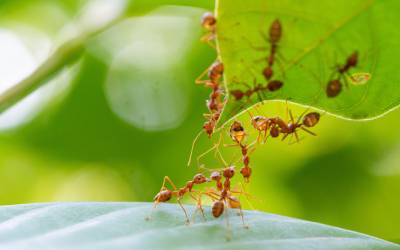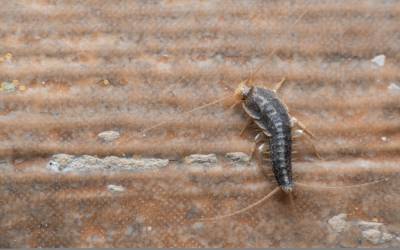If you have been worried about pest infestations, you might think of termites and other wood-boring insects gnawing away at your walls and foundations, or roaches and ants crawling around your pantry. There are many places throughout a home that automatically come to mind when pests are of concern.
If you’re concerned about pests and want to learn more about how you can prevent an infestation, keep reading!
Can You Get Pests In Your HVAC System?
Yes! Unfortunately, your HVAC system is not safe from pests. Your HVAC system is one of the key components of your home—it keeps everyone comfortable, maintains humidity levels, ensures good air quality, and, unfortunately, it can also provide a cozy home for various pests.
First things first, if you have any problems with your HVAC system, always contact a local HVAC services company. If you already have a pest control problem in your heating and air system, contact us immediately to prevent the infestation from getting worse.
If you don’t have a pest problem but are concerned you may have one soon, follow these steps to prevent an infestation:
What are Some Common HVAC Pests to Watch Out for?
Several pests are most likely to find their way into your HVAC system, including:
Rodents (Commonly Mice and Rats)
Behavior: Rodents are notorious for seeking shelter in warm, hidden spaces, and HVAC systems offer an ideal habitat. They can enter through small openings in search of food, warmth, and nesting sites.
Impact: Rodents can chew through ductwork, insulation, and wiring, causing significant damage to your HVAC system. Their droppings and urine can also contaminate the system, leading to health concerns and foul odors. Additionally, they may carry diseases that can be transmitted through the air.
Prevention: To prevent rodent infestations:
- Seal any openings in your home’s foundation, walls, and roof.
- Regularly inspect your HVAC system for signs of rodent activity, such as chewed wires or nests, and address any issues promptly.
Insects (Ants, Roaches, and Others)
Behavior: Insects, such as ants, termites, and roaches, can infiltrate your HVAC system through tiny openings in search of food and shelter. Once inside, they can build nests, lay eggs, cause blockages, or even destruction!
Impact: Insect infestations can reduce the efficiency of your HVAC system by clogging filters and air ducts. Additionally, they can introduce allergens and contaminants into the air, impacting indoor air quality.
Prevention: To prevent an insect infestation:
- Install mesh screens over exterior air vents to prevent insect entry.
- Regularly clean your HVAC system to remove debris and any insect nests.
- Keep your home clean and free of food crumbs, as this can attract pests.
Spiders
Behavior: Spiders often spin webs in and around HVAC equipment due to the warmth generated by the system. These webs can accumulate over time and obstruct airflow.
Impact: While not as harmful as rodents or certain insects, spider webs can reduce the efficiency of your HVAC system. They may also lead to increased maintenance needs.
Prevention: You can prevent spiders from entering your HVAC system by:
- Regularly inspect and clean your HVAC system to remove spider webs and their occupants.
- Ensure that outdoor components are clear of debris that spiders may use as a nesting site.
Bees and Wasps
Behavior: Bees and wasps may build nests in and around HVAC units, especially during warmer months. These nests can obstruct airflow and pose safety risks.
Impact: Stinging insects like bees and wasps can be dangerous if disturbed. Their nests near HVAC units can lead to painful encounters. Additionally, nests can accumulate debris, reducing the efficiency of your system.
Prevention: To prevent bees & wasps:
- Regularly inspect your HVAC system for signs of nests or stinging insects.
- If you notice a nest, contact a bee and wasp pest control professional to safely remove it.
How to Prevent Pests In Your HVAC System
Now that you know which pests to watch out for, here’s how to prevent them from invading your HVAC system:
Use Screens on Air Vents
Exterior air vents are prime entry points for insects. Install mesh screens, preferably made of aluminum wire, to cover these vents and keep pests out.
Maintain Cleanliness
Bugs and rodents can compromise your HVAC system’s air quality. Regular maintenance is crucial. Ensure your HVAC system is serviced periodically to keep it clean and identify any new infestations. Take these additional steps:
- Eliminate standing water around your outside unit.
- Clear away debris that accumulates in the vanes.
- Change filters regularly to maintain clean air circulation.
Seal Ducts
Probably the easiest entry point for insects is through your ductwork. Loose seals and cracks give bugs the opportunity they need to enter and infest your HVAC system.
Sealing your ducts is relatively easy and affordable. You’ll need to purchase foil tape for smaller cracks, and sealant for large holes. While there are guides for maintaining your ductwork, if you don’t feel comfortable taking this on, or your ductwork isn’t easily accessible don’t hesitate to contact an HVAC professional to have ducts cleaned and sealed.
Schedule Your HVAC Pest Control Inspection Today
The most effective way to keep pests out of your heating and air system (and your entire home) is to schedule regular pest control treatments and maintenance. Consider quarterly treatments to address seasonal pests and monthly treatments if you have a history of serious infestations.
Protecting your HVAC system from pests is not only essential for its efficiency but also for the health and comfort of your home. By taking these preventive measures, you can ensure your HVAC system remains pest-free* and continues to provide you with the comfort you rely on.
Call Inman-Murphy, Inc. today for a free consultation!

